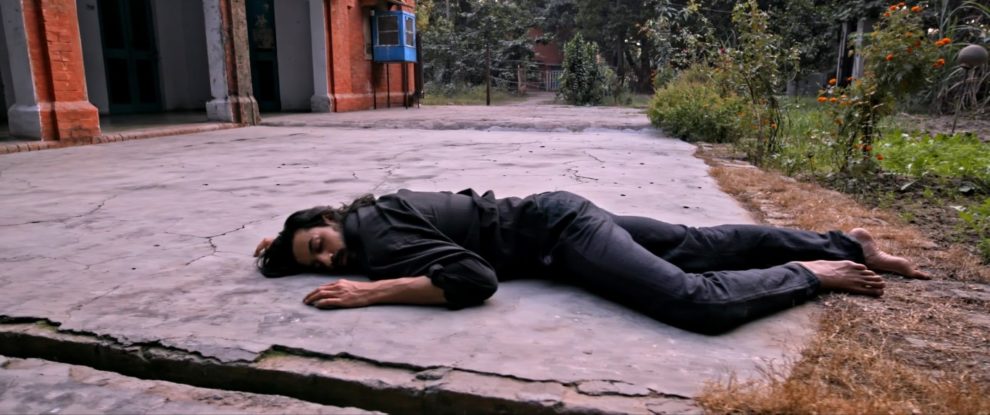Presenting a loose anthology in adapting three stories from Fyodor Dostoevsky, “Ek Betuke Aadami Ki Afrah Raatien” transfers the tales into a modern India. Focus on feelings of loneliness and isolation driving the morality of its subjects, the production explores various taboos that dominate its subjects lives.
“Ek Betuke Aadmi Ki Afrah Raatien” review is part of the Submit Your Film Initiative

“Ek Betuke Aadmi Ki Afrah Raatien” establishes itself as a challenging experience early on, and not just in the under two hours run time in a format (anthology) which is best suited for quicker consumption from the other genres. Delving deep into an introspective narrative from various subjects, and the difficulties manifested from their tragic situations, the production demands the audience to place themselves in this intense mindset. However, there are many contributing factors that make this a rather difficult ask and an uncomfortable viewing experience.
Approaching the work from a Western perspective, the film does offer some intrigue into the social and political landscape of India. However, the film feels like a reflection on the culture aimed to make an impact on said culture, failing to offer greater universal appeal. While there is certainly a space for film of this ilk, audiences viewing the work from the outside will be met with an experience that is both isolating and unintelligible.
Further adding to the feeling of isolation is the film's tendency to use graphic imagery to try to convey its message. This comes from stock footage and images of real corpses and bodily injury sitting long enough on screen to allow every maggot squirm to be seen. These types of images, when used properly, can offer a profound reflection on cruelty within a society. In this case, the images will mostly serve to amplify unease and disinterest within the majority already struggling to find reasons to be invested in the narrative.
Where the production begins to excel is within the technical execution, notably within the cinematography from Arun Varma. Varma does a wonderful job of lingering over his subjects to convey the sense of moroseness and uses panning shots to great stylistic charm. The score is also subtle in execution and blends well with the visuals, the minimalism playing well with the idea of a contemplative experience.
Given the introspective nature of its subjects, the performances feel slightly stilted by the flow of narrative. This is most noticeable in actor Adil Hussain (“Nirvana Inn“, “The Wayfayers“) who comes across as subdued and indifferent compared against other work in his filmography. The only standout of the production comes from Mia Maelzer as Anita Muslim, who brilliantly conveys the emotional complexity of her characters' struggles. Maezler's successful portrayal gives the film as strong sense of identity as her role also works to intertwine the various narratives.
“Ek Betuke Aadmi Ki Afrah Raatien” was an extremely uncomfortable watch for myself, an experience I usually openly welcome if it expands my own knowledge or understanding. Sadly, the film feels too inclusive to offer that appeal and my distaste was only heightened by being subjected to footage of actual corpse rot. However, the movie is not entirely without merit and those who enjoy a challenge, backed with a better understanding of cultural nuances of India, may find a rewarding experience.















